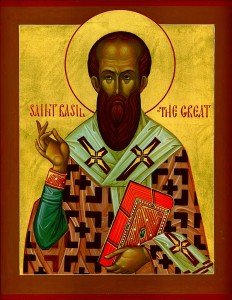 In the last issue of this article, I introduced an idea, based on the Fathers, that there are two basic ways by which one may arrive at the realization that a fundamental change of life must take place – the way of light and the way of darkness.
In the last issue of this article, I introduced an idea, based on the Fathers, that there are two basic ways by which one may arrive at the realization that a fundamental change of life must take place – the way of light and the way of darkness.
Both of these ways are a gift from God and as such are the result of His saving uncreated grace (i.e., help) operating in our lives. The Fathers were speaking neither of an emotional nor a psychological state or condition. Repentance is not an emotion but rather an intelligent, thoughtful, voluntary process which a person engages in order to truly bring about the personal transformation needed to become the adopted children of God. This requires a real union with Christ so that the Spirit within us can guide and support this personal change.
Just as Christ became the New Adam in order to save the whole Adam, that is to say, to save all mankind, so too do we, by become Christlike – through the purification of the passions and the cultivation of the virtues, by living according to the commandments of Christ – so too do we embrace, as does Christ, the whole Adam in our person.
This is what personal transformation is all about. By growing in virtue and eliminating vice in our lives, we are transformed into adopted children of God. This is Theosis and the goal of earthly life. We are here on earth and are confronted with a variety of life challenges in order to develop virtue and thus become a transformed human person capable of a true and deeper union with our Creator-God. We are here to learn how to be what we were created to be, namely children of God.
Once we begin to see and understand the true purpose of life, we begin to change and are every more capable of sustaining a real relationship with God. This is something that we have to learn and life gives us a multitude of chances and opportunities to learn how to have and maintain genuine relationships.
The teaching of the Fathers about Theosis is based on the understanding that man, the greatest of all God’s creatures, has been called to enter into direct and unmediated communion with God even during this present life. The chief manner by which this is achieved is through the grace of God, through sincere prayer that makes union with God real, and a voluntary effort to work for a deeper union with God. God’s Spirit will facilitate and guide this process when we voluntarily embrace it.
